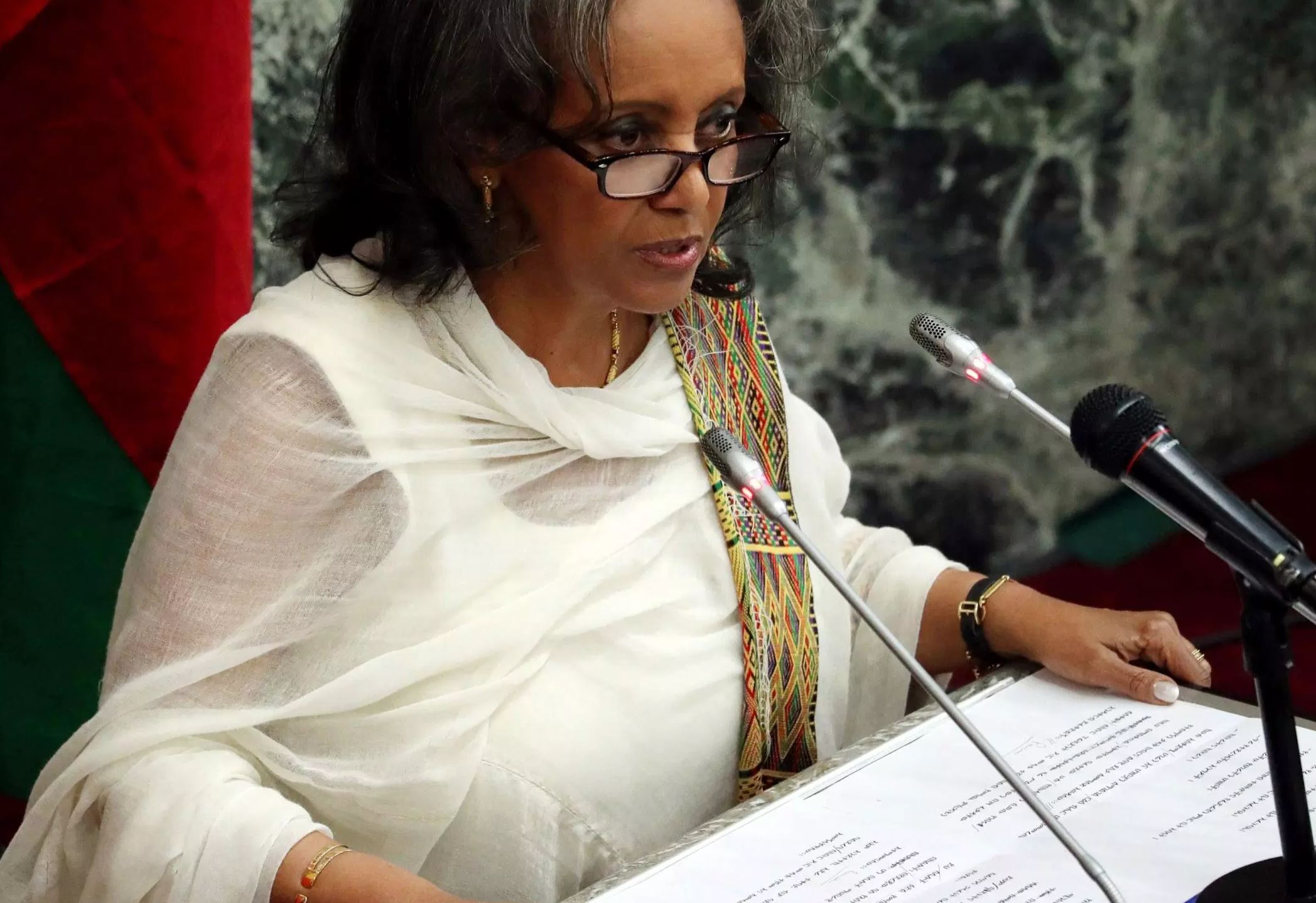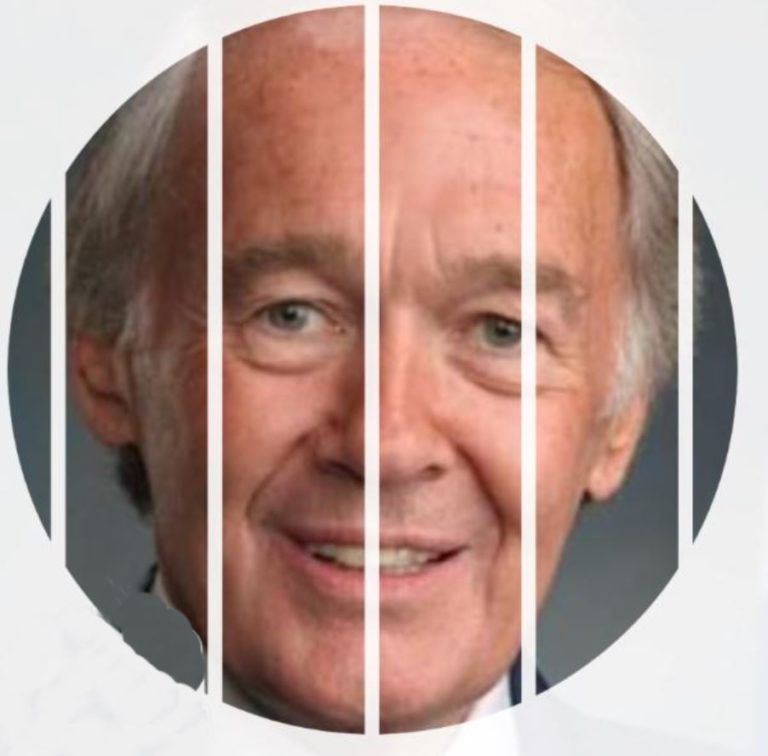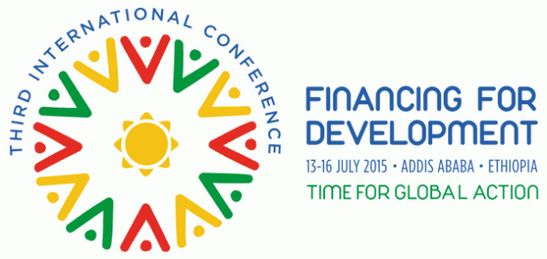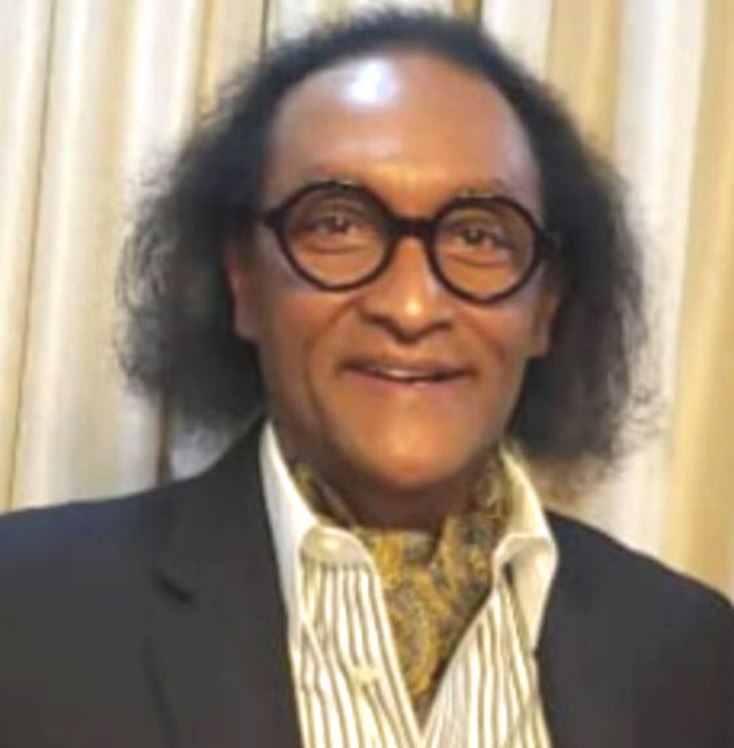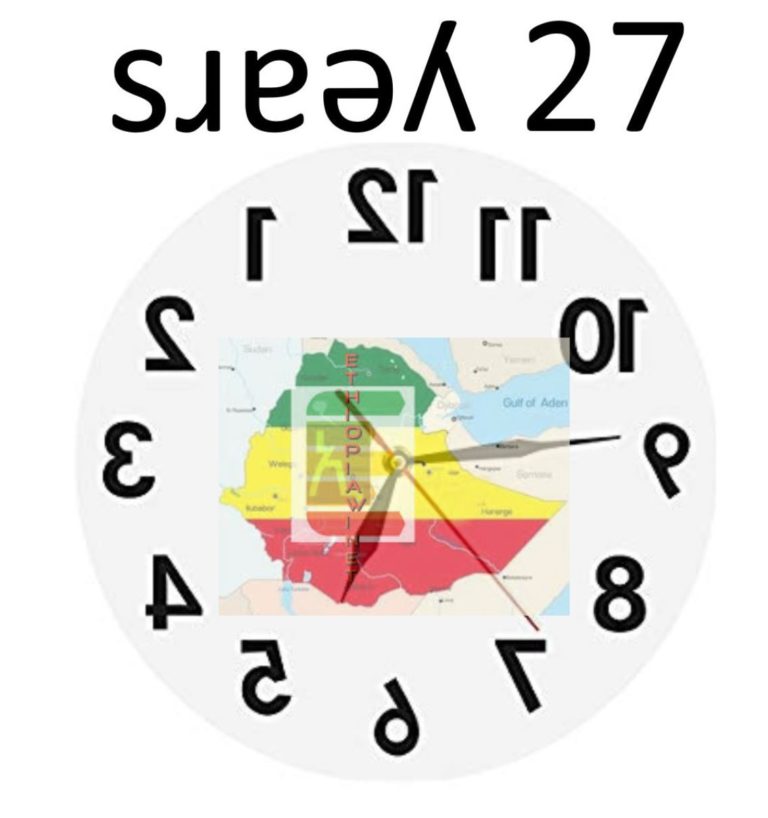Ethiopian Women Rising! Higher and Higher!
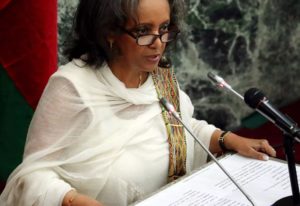
Abiy Ahmed’s Gender Equality Revolution in Ethiopia
Comandante Fidel Castro said, “A revolution is a struggle to the death between the future and the past.”
He also proclaimed, “Men do not shape destiny. Destiny produces the man for the hour.”
If men do not shape destiny, maybe women do.
If destiny produces the man of the hour, is it also possible destiny produces women of the century?
Long before El Comandante, Shakespeare in Julius Caesar wrote, “Men at some time are masters of their fates./ The fault, dear Brutus, is not in our stars/ But in ourselves, that we are underlings.”
There is no fault in PM Abiy’s elevation of the destiny of Ethiopian women to the highest political offices in the land.
In Ethiopia’s nonviolent revolution under the leadership of H.E. Prime Minister Dr. Abiy Ahmed, there is no struggle to the death between the past and the future.
There is only a struggle to life, to liberty, to the pursuit of happiness, to justice, to political, social and gender equality and to dignity.
There is only a struggle to build the New Ethiopia based on forgiveness, on peace and reconciliation.
Today, there is a struggle for gender equality.
It is a struggle against troglodytes (modern cave men) who believe women’s place is in the kitchen and their role to be baby factories. The trogs do not believe women belong in the stateroom or boardroom.
Fidel would have surely said destiny produces the man for all seasons, not the man of the hour, had he met Abiy Ahmed.
It is mindboggling that the man for all seasons has elevated women to political heights never seen in Ethiopia’s 3 thousand-year history.
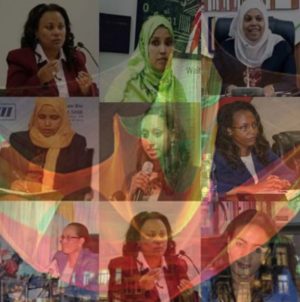
Barely two weeks ago, PM Abiy slashed the bloated ministries from 28 to 20 and appointed an equal number of men and women to his 20-person cabinet.
He created a new Ministry of Peace and appointed a woman to head it.
He also appointed a woman to head the old Ministry of War (Defense).
War and peace in the hands of two women.
Now, a woman president who preaches, “Peace, peace, peace”.
I just love it!
When women are in charge of war and peace, I believe the “spirit of love, joy, peace, forbearance, kindness, goodness, faithfulness, gentleness and self-control” will prevail.
PM Abiy said the Ministry of Peace was very much needed “because our biggest problem is peace. The task of the ministry is to cultivate citizens with inner peace and generate positive energy in society. Its function is to use all resources to spread peace, help people to think peace, preserve peace and pursue peace.”
We have a prime minister whose motto is “love, forgiveness, reconciliation and peace”.
It takes me back to my day when we used to sing, “Oh, Peace Train take this country”:
Now I’ve been happy lately/Thinking about the good things to come
And I believe it could be/Something good has begun
Oh, I’ve been smiling lately/ Dreaming about the world (Ethiopia) as one
And I believe it could be/ Someday it’s going to come…/
There ride the Peace Train/ Oh, Peace Train take this country/
Come take me home again…
The Peace Freight Train is taking over Ethiopia. All Aboooard!
In presenting his ministerial candidates to parliament, PM Abiy explained “Our women ministers will disprove the old adage that women can’t lead. This decision is the first in the history of Ethiopia and probably in Africa.”
He said women had made a great contribution to restoring peace and stability, were less corrupt, respected their work and could sustain the drive for change.
Aaah! If only the late first and only British prime minister Maggie (Iron Lady) Thatcher was around. She would be dancing up and down Downing Street.
I did not care much about Maggie’s politics, but I loved her sassy attitude about gender roles. “If you want something said, ask a man; if you want something done, ask a woman.”
But more directly, I could not agree more with Maggie’s maxim. “Any woman who understands the problems of running a home will be nearer to understanding the problems of running a country.”
I don’t know for sure, but I think that is exactly what PM Abiy is saying with his stunning appointment of 10 women to his cabinet and a president to boot.
PM Abiy’s decision to gender balance his cabinet was received in stunned disbelief or great accolade.
Moussa Faki Mahamat, Chairperson of the African Union Commission, issued a statement declaring, “Prime Minister sets a major milestone in Africa’s efforts towards gender equality and women’s empowerment, in particular women’s access to high level political decision-making positions.”
Faki urged all African leaders to follow in Abiy’s footsteps.
Talking to some of my Hippo (older generation) friends, I got the sense that they were just giving lip service to the idea of gender equality with a big BUT.
BUT how can she be defense minister? She has no military training or background?
BUT how can it be expected that macho generals will follow the order of a woman?
BUT so many women in the cabinet is going to demoralize the men.
BUT he could have gradually increased their numbers. These women will not get respect in the bureaucracies.
BUT it does not make sense to give “women so much power.”
The hardcore were clucking like Chicken Little. “The sky is falling! The sky is falling! A woman defense minister! A woman president.”
Abiy Ahmed says, for women in Ethiopia, the sky is NOT the limit.
Abiy Ahmed has been in office less than seven months! He is changing everything for the better.
Those of us still living in the past and cherishing our narrow-minded fantasies about male chauvinism just can’t wrap our minds around the fact that whatever men can do, women can do better. That is, if given a fighting chance!
Go ahead, charge me with gender treason.
To my Hippo friends, I give them a simple answer: DEAL WITH IT! LIVE WITH IT!
Representation of Women in Political Leadership
According to the World Bank, in 2016, the female population in Ethiopia was 50.07%, (evenly distributed 52.4 million males and 52.5 million females).
Yet political participation and representation of women has always been dismal.
According to a 2016 study:
In the 2007 elections, women held only 22% of the seats in National Parliament. Only 2 out of 28 Ministerial posts were held by women and 6 out of 30 state minister slots were held by women. In the 1995 election female representatives held 2.7% of members of parliament seats, in the 2000 election around 7.7% of the elected members of parliament were women. The 2005 election resulted in an increase of female member of parliaments to 22%, the 2010 elections led to a female share of 27.6% female parliamentarians… In contrast to their male counterparts and voters, however, female representation still remains somewhat weak and female leadership skills undeveloped restricting their ability to challenge and influence decisions that affect women’s lives.
In 2018, 10 of 20 ministerial posts are held by women.
The president of Ethiopia is also a woman.
I expect more young women at the mid-executive levels in all ministries as well as in all other government institutions on the coming years.
I am happy to declare 2018 as “Year of the Woman” in Ethiopia.
President Sahle-work Zewde
In my view, there is no one today more qualified to be president of Ethiopia than Sahle-work Zewde.
This is not to say there are no other Ethiopian women of comparable experience. There are quite a few, and I hope all of them will get an opportunity to serve their country at the highest levels.
Before becoming president, President Sahle-work served as the first woman U.N. Special Representative to the African Union at the level of Under-Secretary-General. She was Director-General of the United Nations Office at Nairobi. She has served in many capacities including Special Representative and Head of the United Nations Integrated Peacebuilding Office in the Central African Republic and Permanent Representative of Ethiopia to the African Union and the United Nations Economic Commission for Africa. She was Director-General for African Affairs in the Ethiopian Ministry of Foreign Affairs, Ethiopian Ambassador to France and Permanent Representative to the United Nations Educational, Scientific and Cultural Organization accredited to Tunisia and Morocco, Senegal, Mali, Cape Verde, Guinea-Bissau, Gambia and Guinea.
President Sahle-work’s speech centered on peace.
She pleaded for “peace in our families, peace with our neighbors, peace in the weredas (districts), peace in the kilils (regions), peace with our neighboring countries, peace in the (Ethiopian) Diaspora, peace, peace, peace…”
How a man treats his mother and wife tells you everything you need to know
I gave Abiy Ahmed two thumbs up after I heard him pay the highest respect to his mother, his wife and all Ethiopian mothers during his acceptance speech before parliament on April 2.
Truth be told, I knew everything I needed to know about Abiy Ahmed the man after I heard him (slide clip to 33:30) talk about his mother, his wife and all Ethiopian mothers this way:
… I respectfully ask that I be permitted to thank my late Ethiopian mother, who when I was seven years old, planted in my mind her vision that I would one day stand before you today for this occasion. She had farsighted and keen vision. My mother was one of those strong Ethiopian mothers of good will. She had no education and no wealth. In thanking my very dear mother, I want to thank all Ethiopian mothers for their sacrifices and urge them to carry on with their special responsibility.
Ethiopian mothers have a big role in shaping the destiny of their children. I give them the highest admiration and heartfelt respect for all their sacrifices. Their children are the true renaissance (salvation) of our country.
A wife has two or three roles. When two, they take care of themselves and their husbands. When three, they take care of the children. I want to thank the woman who received my mother’s vision and stood in her place and kept me going, my wife Zinash Tayachew…
I have never heard such lavish praise for mothers, wives and women in any inaugural speech by any leader anywhere.
So, it is really true that behind ever great man are greater women who made the great man.
Simply put, there would have been no Abiy Ahmed without his mother Tizita Wolde or his wife Zinash Tayachew!!
Why I am so happy with PM Abiy’s decision to gender balance his cabinet
For the longest time, I have been disgusted by the second-class citizenship of women in Ethiopia.
I was once so outraged, I called for the establishment of a separate Ethiopian Women Human Rights Movement.
In my July 5, 2010, in a commentary entitled, “Speaking Truth On Behalf of Ethiopian Women”, I “expressed deep regrets over the never-ending subjugation of women in Ethiopian society and called for a movement for the advancement of Ethiopian women’s human rights” and urged “Ethiopian women to join hands in building the ‘future country of Ethiopia’ Birtukan Midekssa dreamed about:
Birtukan Midekssa, Ethiopia’s foremost political prisoner and first woman political party leader in Ethiopian history enjoyed talking about an allegorical “future country of Ethiopia” that would become an African oasis of democracy and a bastion of human rights and the rule of law in the continent. In Birtukan’s “future Ethiopia” women and men would live not only as equals under the law, but also work together to create a progressive and compassionate society in which women are free from domestic violence and sexual exploitation, have access to adequate health and maternal care, and are provided education to free them from culturally-enforced ignorance, submissiveness and subjugation. But if the situation of women in the “present country of Ethiopia” is any indication, Birtukan’s “future country” is in deep, deep trouble.
I was the No. 1 supporter and defender of Birtukan Midekssa when the late Meles Zenawi jailed her first because she did her judicial job professionally, and second when he jailed her for allegedly denying a pardon without a trial of any kind.
In October 2013, I began a campaign for breast cancer awareness for Ethiopian women which continued with the help of family members.
October is Breast Cancer Month in the U.S.
I urge Ethiopian women, and for that matter, all women who read by commentaries to get regular breast cancer screening.
In my September 2014 commentary, “Crimes Against Womanity: Marriage by Abduction in Ethiopia”, I raged against the pernicious institution of “marriage by abduction” (marriage by child rape) in Ethiopia.
The crime of “marriage by abduction” victimizes mostly underage girls and exposes them to major psychological and physical trauma and life-long obstetric health problems including fistula.
Ethiopia is poor because Ethiopian women are poor
For centuries, Ethiopian law has “treated women as if they were children or disabled.”
Article 35 of the Ethiopian Constitution (1995) guarantees women not only full equality but also preferential treatment “in the political, economic and social fields both within public and private organizations.”
Women are provided sweeping constitutional protections from “all laws, stereotyped ideas and customs which oppress women or otherwise adversely affect their physical and mental well-being.” They have guaranteed property rights and “the right of access to education and information on family planning” to “prevent health hazards resulting from child birth.”
Article 34 secures matrimonial contractual rights for “women attaining the legal age of marriage.” It mandates that “Marriage shall be based on the free and full consent of the intending spouses.” Even before the rights of women were “constitutionalized”.
The National Policy on Women was issued in 1993 with the aim “to institutionalize the political, economic, and social rights of women by creating structures in government offices and institutions so that the public policies and interventions are gender-sensitive and can ensure equitable development for all Ethiopian men and women.”
But much of the constitutional and legal protections are not worth the paper they are written on.
The 23-page so-called women’s policy is nothing more than a recitation of platitudes, catchphrases, clichés and boilerplate language about women’s problems.
A 2006 assessment of the 1993 policy on women described it as essentially useless.
The 2000 U.S. State Department Human Rights Country Report on Ethiopia described women relegated to second-class citizenship.
In 2010, U.S. State Department Human Rights Country Report on Ethiopia described the status of women in stark terms: “A 2005 Demographic and Health Survey found that 81 percent of women believed a husband had a right to beat his wife, sexual harassment was widespread and harassment-related laws were not enforced. Ethiopian women have high maternal mortality rates. Discrimination against women was most acute in rural areas. In urban areas women had fewer employment opportunities than men, and the jobs available did not provide equal pay for equal work.”
In 2018, the condition of the vast majority of Ethiopian women has barely changed.
It is manifest that the vast majority of Ethiopian women are trapped in a patriarchal and paternalistic system that exploits them sexually, socially, politically and in every other way.
The vast majority of Ethiopian women are still the wretched of the earth.
If not a human rights movement, at least a new culture of women’s activism and assertiveness for Ethiopian women is needed
Throughout the Western world and elsewhere, women have organized effectively to form political, cultural, and economic movements aimed at establishing greater rights and securing effective legal protection for women.
In some part of the world, the label “women’s liberation” has been given to describe the campaign for women’s rights. Those who advocate for women’s rights have been called “feminists” because of their efforts to change traditional perspectives on a wide range of issues covering domestic violence, sexual harassment and exploitation, economic equality and elimination of all forms of gender discrimination against women.
Labels and designations for Ethiopian women’s activism are unimportant in describing the need for activism. What is important is the realization that effective activism and advocacy on behalf of Ethiopian women is long overdue.
Well-educated and well-placed Ethiopian women are in the best position to engage in activism to stop violence against women, help teach them to assert their legal and human rights and research and document the condition of women in society for informed policy-making.
I have no doubts President Sahle-work and the women ministers will stand up for women’s rights and help Ethiopian men to reconsider their long-held outdated beliefs about women.
Young Ethiopian women need female role models
I often wonder if many Ethiopian fathers and mothers seriously ponder whether their daughters have good role models in strong, ethical and assertive Ethiopian women.
It pains me to think that the vast majority of girls growing up in Ethiopia today will absorb the beliefs from their mothers and society that domestic violence and sexual exploitation are acceptable; that male supremacy is the natural order of things and that they will likely be married off in childhood and have children while they are themselves children and very likely die an early death from complications of childbirth.
Bright days are ahead for Ethiopia women
Things are looking up for Ethiopian women.
As more women occupy top level political positions, I am hopeful they will be more attentive and sensitive to the under-representation of women and take action to correct it.
I am inspired by the all-female flight operations at Ethiopian Airlines. There are now international EA flights with an all-female pilot, cabin crew, in-flights agents, on-ground flight dispatchers. 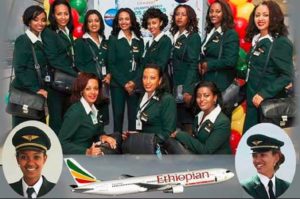
I am all for the rights of women because women’s rights are human rights.
Ethiopian Diaspora Trust Fund
The Ethiopian Diaspora Trust Fund which was launched four days gives priority attention to projects focusing on women and youth.
It is a fact that millions of young girls in Ethiopia miss school because of lack of clean drinking water. They have to spend hours fetching dirty water for their families walking long distances.
Ethiopians girls and women face abuse, child labor, trafficking and “child marriage”.
Female entrepreneurship is dismally low because women are unable to get loans to start their own businesses.
EDTF gives special attention to projects focusing on the special needs of women and youth.
I ask all Ethiopians, especially those in the Diaspora, to give us a hand so we can give Ethiopian women a HAND UP!
SUPPORT THE ETHIOPIAN DIASPORA TRUST FUND at
ethiopiatrustfund.org
Ethiopia is poor because Ethiopian women are poor.

